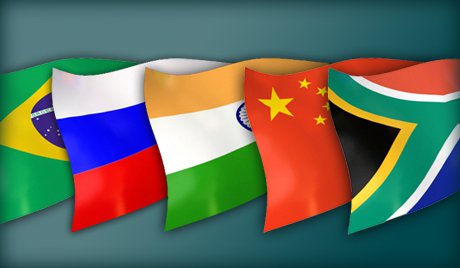
The BRICS nations – Brazil, Russia, India, China and South Africa – are building their own high-speed Internet free of the U.S. influence. First announced last month by Brazil’s President, Dilma Rousseff, BRICS Cable will have considerable bandwidth and room for growth and represents a middle finger at the U.S.
The majority of the backbone is underwater, as it runs from Vladivostock, Russia to Shantou, China to Chennai, India, passes through Singapore, on to Cape Town, South Africa to Fortaleza, Brazil. The network is said to be in its final phase of implementation.
The network is a 2 fibre pair with 12.8 Tbits/sec capacity, all under water. Such a network would take some time to build, especially laying that much underwater cable, so this has to have been going on for a while. The five nations all have their reasons for doing this, but Brazil in particular is doing this to divorce itself from the U.S.-centric Internet because of Washington’s online spying.
President Rousseff has ordered her nation take steps for greater online independence and security following revelations that the NSA intercepted her communications, hacked into the state-owned Petrobras oil company’s network and spied on Brazilians who using U.S. companies like Facebook and Google. Google’s failed social network Orkut may be dead in the U.S. but it is enormously popular in Brazil.
The project is expected to go live in mid-2015. The immediate and most obvious beneficiary beyond the four founders would be Africa, since the backbone loops around lower half of the nation.
It would likely benefit Russia and China as well. Neither one of these countries is known as bastions of free speech, China in particular, and they would undoubtedly love an Internet that’s easier to control and easier to track down individuals. If you don’t think they have those controls built in, you aren’t familiar with their track records.
It’s a shame they won’t be leaving the main Internet, because in all honesty, losing China and Russia from the main network would not be a bad thing when you consider how much piracy, malware, hacking, child porn and other vile materials originate in Russia. Remember the Russian Business Network? And then there’s China’s constant cyberattacks on the U.S., particularly our military and government.
Unfortunately, they are not leaving the main Internet. Creating their own Internet in isolation would be pointless. There is a connection to Miami, so traffic will flow from the Internet we all know and love and the BRICS Cable Internet. They just don’t want traffic to be routed through the U.S. like it does now. The U.S. developed the Internet and holds the vast majority of IPv4 addresses. I once saw a statistic that showed Stanford University had more IPv4 addresses than were available to all of China. However, this was some years ago and before the mass rollout of IPv6.
This kind of Internet fragmentation would be problematic because it would enable bad actors like Russia, China, and a whole host of Middle Eastern nations to control their populaces and prevent any uprisings like the 2009 uprising in Iran or the Arab Spring of 2011.
But geographic isolation could ruin the effectiveness of popular software applications and services that rely on the Internet’s open structure. For example, almost all of the major security and malware firms have honeypots on the Internet to catch malware and hackers out there, many of which originate in Russia. Now these bad actors can hide in the BRICS Cable network and we might not be able to find them, making zero-day threats harder to spot.
Brazil’s anger is understandable. I’m rather bothered that the Brazilians were angrier at our government over the domestic spying than we were. America seemed to focus more on Snowden than what he was revealing.
The commitment from these countries seems clear. More may follow, which would result in a fragmenting and walling off of the Internet, and I fear that would benefit the bad players much more than it would stop any legitimate complaints of U.S. spying.





